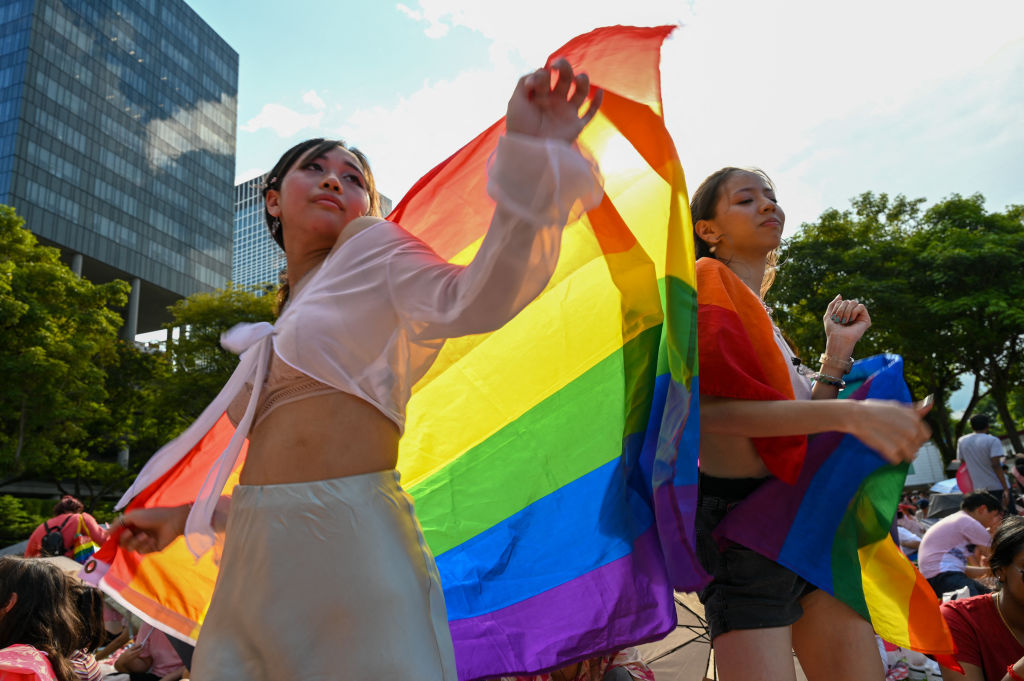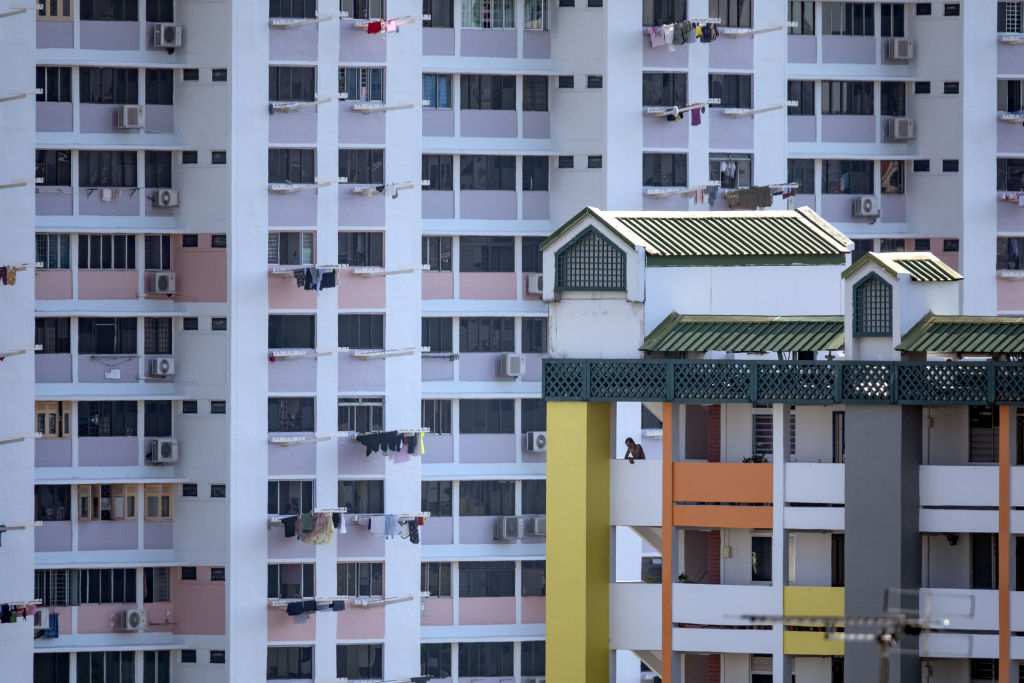
Singapore’s move to bolster rules preventing same-sex marriages could be a serious blow to the nation’s lesbian, gay, bisexual, transgender and queer community in one of the city-state’s most important wealth and lifestyle areas: housing.
Around 80% of Singaporeans live in state-subsidized public housing that serves as their primary asset. Access to new flats is largely set aside for young, married couples, with grants of as much as S$80,000 ($57,000). LGBTQ applicants — categorized as single buyers — can only enter the market when they turn 35, with a limited pool of smaller apartments to choose from and lower government subsidies.
“At a time when my peers were settling down and building homes, it was very clear that was out of reach for me,” said Adrianna Tan, a 36-year-old Singaporean professional now living in San Francisco with her wife. “There’s the assumption that queer Singaporeans will simply rent or buy private property, because there’s the perception that we are rich.”
More from TIME
In a speech on Sunday, Prime Minister Lee Hsien Loong said the government would repeal Section 377A of the penal code that criminalizes sex between men, but would also amend the Constitution to protect the legal definition of marriage — a union between a man and a woman — from being challenged in the courts.
Read More: Singapore’s Half-Hearted Concession to LGBT Rights
The move was seen as a compromise between LGBTQ-rights advocates and more conservative members of Singaporean society, but it frustrated people who had hoped to see the government go further since Section 377A has gone unenforced for years.
With rental and private property prices climbing to records, the move to change the Constitution could make it even harder for LGBTQ citizens to get equal access to more affordable homes built by the Housing and Development Board.
Lee said many national policies rely upon Singapore’s legal definition of marriage, including public housing, education, adoption rules, advertising standards and film classification. The government has “no intention” of changing the definition of marriage or the policies based on it, he said on Sunday.
“Even though the government repealed Section 377A, it still upholds family-centric policies,” said Tien Foo Sing, a real estate professor at the National University of Singapore.
Singapore is one of Asia’s most expensive property markets, making the availability of state-subsidized homes the only way to enter the market for most citizens.
Under its Build-to-Order program, the HDB assesses applications for ballots of newly constructed properties to citizens, giving first-time married applicants with children preferential treatment. The median waiting time for a flat is between four and five years.

Around 31% of Singapore’s population above the age of 15 were classified as single in 2021, government data show. There are no official numbers on the LGBTQ community in the city-state.
With the government offering parenthood incentives to address the nation’s falling birth rate and housing stock closely aligned with population planning, it’s unlikely to relax restrictions for single buyers.
Almost all new HDB flats are on a 99-year lease and buyers are forbidden from reselling for five years. Larger HDB units in the best neighborhoods can resell for more than S$1 million.
By contrast, private two-bedroom condos in the central part of the city go for around S$2.5 million, according to listings on property portal 99.co. Singapore residents earn a median gross monthly income of S$4,680, according to data from the Ministry of Manpower.
“The option of private housing is a luxury for most,” said William Tan, a realtor who specializes in serving LGBTQ clients. “Only those with at least a S$6,000 monthly income can even consider buying a condo and not many people under 35 are there yet.”
Read More: Homophobia Is Not an Asian Value
Singaporean Andee Chua, 32, purchased a one-bedroom private condo when he was 29 after several years of renting with his partner. “The down-payment was difficult. I used up almost all my savings and my parents had to step in to help.”
The cost of his apartment was comparable to the five-room HDB resale unit that his sister, a mother of two, had bought. Chua is considering selling his condo to purchase a larger HDB flat when he turns 35.
Tan said few LGBTQ couples bid for BTO flats, given the small size of the units they can get and the long wait time.
“You will be 40 when you get your home and 45 if you want to sell it after the minimum occupancy period,” Tan said. “Profits from the sale will not be enough to upgrade to something more substantial.”
Married couples with a head start can typically resell their larger, more valuable HDB flats for a decent profit in their thirties, he said.
“It’s still hard for us to own a home, and getting harder,” said Adrianna Tan, the San Francisco resident who relocated to the US in 2018. “Our housing market is hot, and the barriers to entry are high simply because we are not heterosexual or married.”
—With assistance from Low De Wei, Yuko Takeo and Lily Nonomiya
More Must-Reads From TIME
- The 100 Most Influential People of 2024
- The Revolution of Yulia Navalnaya
- 6 Compliments That Land Every Time
- What's the Deal With the Bitcoin Halving?
- If You're Dating Right Now , You're Brave: Column
- The AI That Could Heal a Divided Internet
- Fallout Is a Brilliant Model for the Future of Video Game Adaptations
- Want Weekly Recs on What to Watch, Read, and More? Sign Up for Worth Your Time
Contact us at letters@time.com